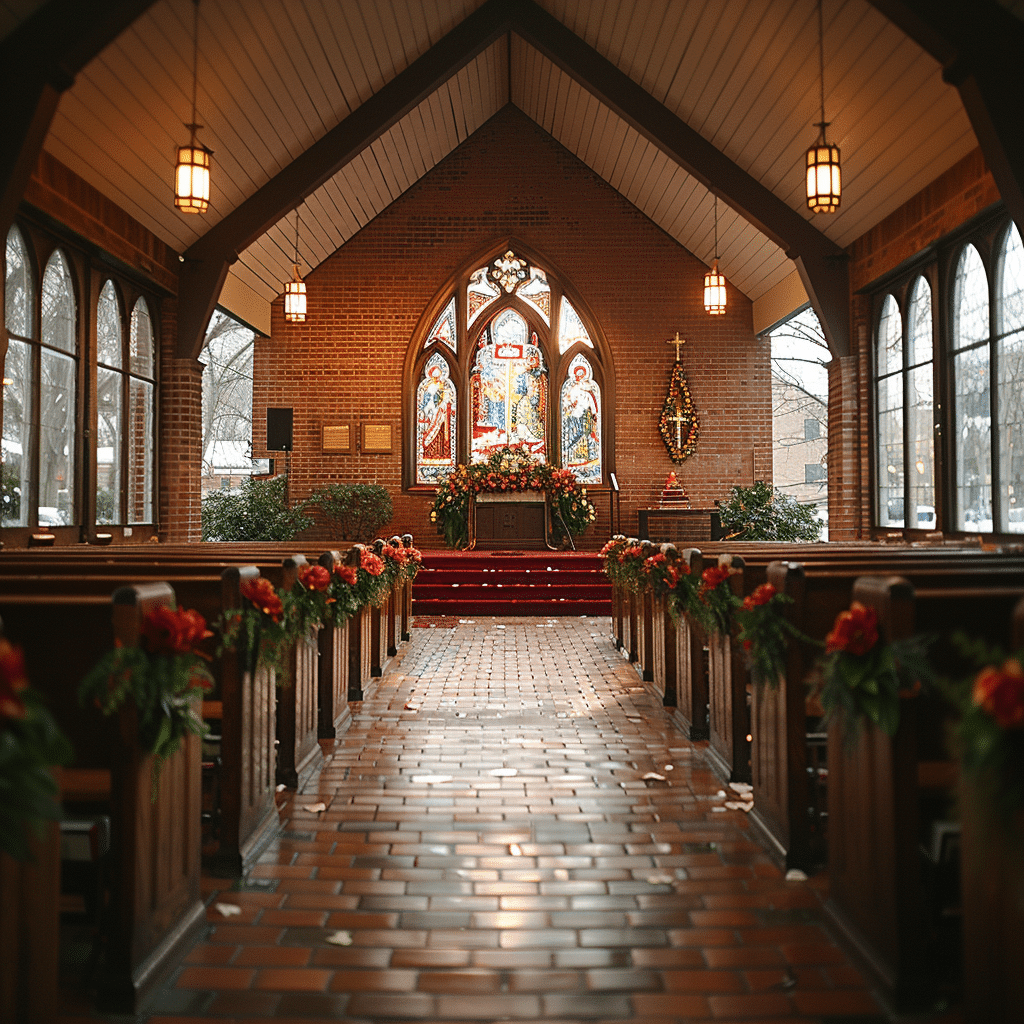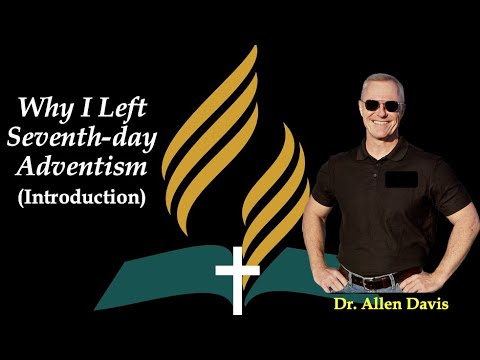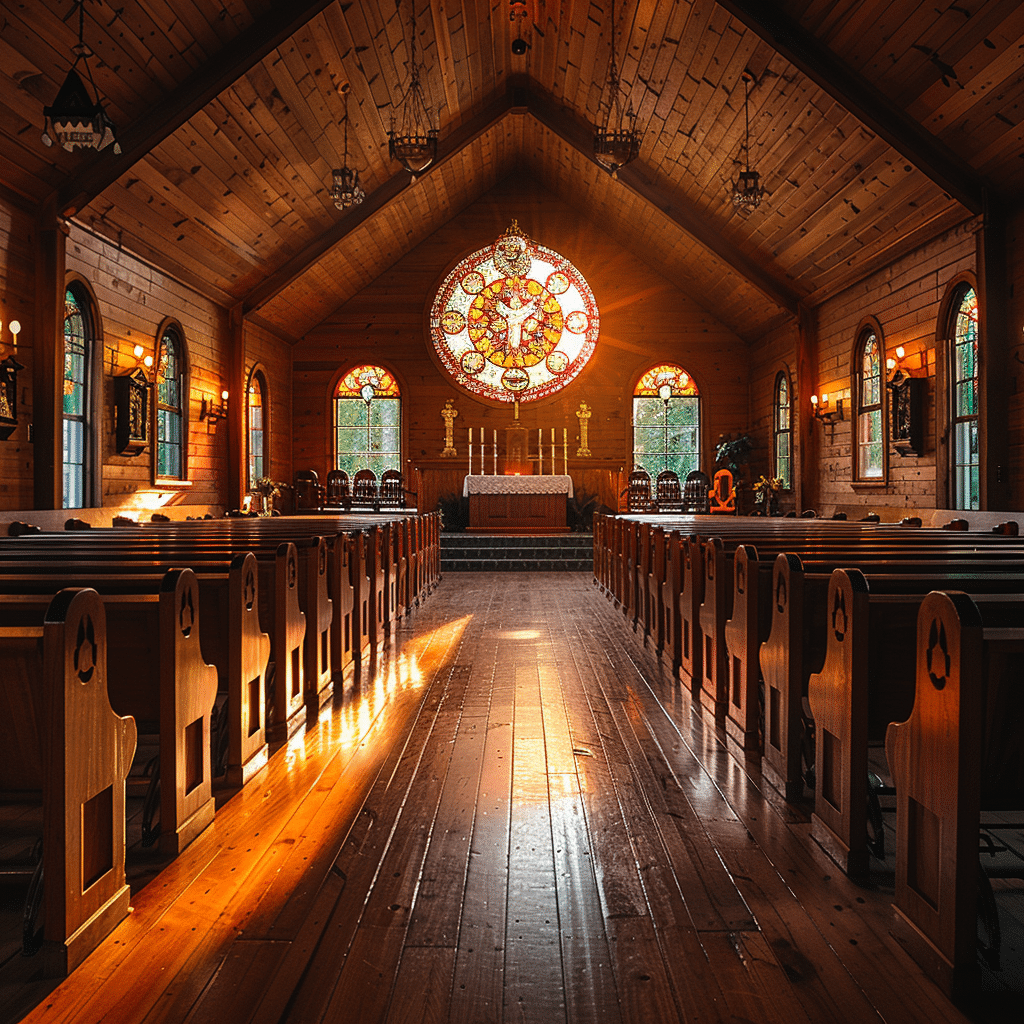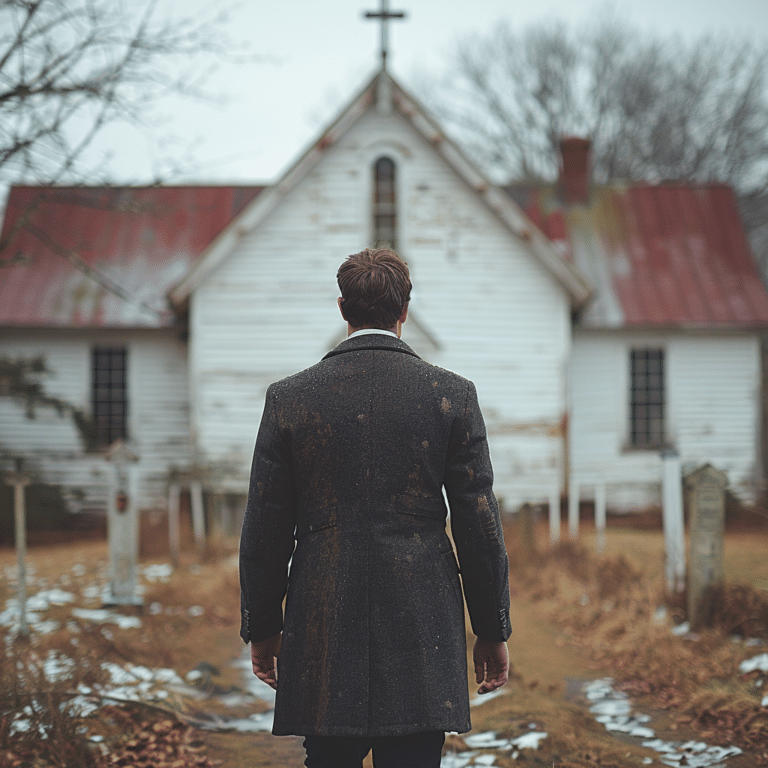Unveiling the Reasons: Why I Left the Seventh-day Adventist Church
For so long, I wrapped myself in the comfort of familiar rituals and the camaraderie of like-minded believers within the Seventh-Day Adventist Church. The Sabbath days were a cornerstone of my life, a pacemaker that set the rhythm for my weeks. Yet, a subtle dissonance began to creep in. It was a sermon that struck a discordant chord, leaving my faith shaken. Scientists had painted a complex tapestry of the universe’s origins, but it clashed with the literal interpretations I had grown up with. No longer could I brush aside my questions with simple platitudes. I needed answers that reconciled my faith with the expanding universe of my understanding.
The seeds of doubt were sown during a discussion at a Sabbath study group. It was here I saw how rigid some of our beliefs could appear, like the unwavering insistence on a young Earth creation model. It was like a glaring mismatch between my growing scientific comprehension and the doctrine’s staunch stance, tempting me to peek beyond the walls of Adventism. A sense of unease took root, as the doctrine I once held dear increasingly felt out-of-sync with the person I was becoming.

Doctrine versus Personal Beliefs: Why They No Longer Align
The further I delved, the more it became evident that my personal beliefs were drifting from the Church’s doctrines. From the insistence on the Sabbath’s absolute observance to dietary prescriptions, the crux of my faith began to creak and groan under the weight of my everyday experiences. I struggled with the literal interpretation of the investigative judgment, a teaching suggesting that even after accepting Christ, our actions were still being tallied. The clash was jarring, given the evangelical Christian understanding that righteousness stems solely from faith in Christ—a belief that resonates much more with my understanding of a compassionate deity.
While respecting the Sabbath initially brought solace and a sense of devotion, I began to see how the rigidity of its observance could impede on personal freedom and the joy in celebrating faith in diverse ways. The more I explored these disparities, the clearer the disconnection became.

| Reason for Leaving | Explanation | Relevant Seventh-day Adventist Beliefs |
|---|---|---|
| Doctrinal Differences | Disagreement with specific SDA beliefs such as the importance of the Sabbath, the sanctuary doctrine, eschatology, and the writings of Ellen White. | SDAs observe the Sabbath on Saturday and emphasize the doctrine of the heavenly sanctuary, the prophetic role of Ellen White, and Adventist eschatology. |
| Cultural or Community Issues | Challenges fitting in with the local SDA community culture or facing judgmental attitudes. | Community is a core part of SDA; issues may not directly relate to official doctrine but rather to the behavior of individuals within the church. |
| Belief in Salvation | Different understanding of salvation which might contradict SDA’s emphasis on Sabbath keeping as an expression of faith. | While SDA teaches salvation through faith in Christ, the observance of the Sabbath is also seen as a crucial expression of such faith. |
| Personal Convictions | Development of personal beliefs that no longer align with those of the SDA Church. | Individual spiritual journey leading away from the four SDA-specific doctrines or other evangelical Christian teachings upheld by SDAs. |
| Change of Lifestyle | Desire to live a lifestyle not in harmony with SDA teachings (diet, Sabbath observance, etc.). | Strict adherence to the Sabbath, dietary regulations, and other lifestyle aspects is advocated by SDAs. |
| Divorce and Marital Issues | Divorce might be taboo or difficult to navigate within the SDA Church, causing alienation. | Divorce rates among SDAs vary, and it’s a sensitive issue that could affect church relationships and community standing. |
| Reproductive Choices | Disagreements with SDA perspectives on birth control, family planning, and women’s role might prompt departure. | The SDA Church believes in the sanctity of life and may have specific teachings on these topics that some individuals may find restrictive. |
| Intellectual Reasons | Critical thinking and scholarly study might lead some members to question the church teachings or history. | Questions may arise on the church’s interpretation of the Bible, the authority of Ellen White, or historical SDA positions. |
| Social Justice Issues | SDA may not align with all members’ views on social justice, leading to conflict and potential exit. | While the SDA church often participates in social justice, individual members might feel the need for different or more active engagement in these issues. |
| Lack of Fulfillment | Lack of spiritual fulfillment or personal growth within the church leading to spiritual searching elsewhere. | This is a personal journey and can relate to many factors including church teaching, community, or individual spiritual needs. |
A Community’s Response: When Questions Meet Resistance
Let me tell you, rocking the boat doesn’t come without a splash. As my inquiries and skepticism became more pronounced, so did the resistance from my community. For every supportive nod, there was a cold shoulder; where some offered empathetic ears, others whispered of heresy. Family and friends seemed to fear that dialogue could unravel the tightly-knit fabric of our shared beliefs.
This pushback wasn’t just disheartening; it stung. It’s a tough pill to swallow when those you’ve prayed with, served with, and called family pull away, their warm smiles turning into furrowed brows. These shifts left emotional scars and catalyzed the realization that my journey with the church was veering towards a crossroad.

The Role of Prophecy: Ellen G. White’s Teachings in Question
Ellen G. White, a figure towering over Adventist theology, became a puzzle I couldn’t solve. Her prophecies and teachings were integral to the church’s foundation, yet my research revealed discrepancies and unfulfilled predictions. This discovery was jarring, igniting an intellectual restlessness within me. Why, for instance, did some prophecies not come to fruition, and how did that reflect on the infallibility attributed to her writings?
In my search for truth, I found wisdom in critical thinking, informed by sources as diverse as the reflections of Gabbi Tuft on personal transformation, which challenged me to embrace my evolving beliefs without fear. Her boldness in charting a new path reflected the courage I longed to express in my spiritual journey.

Exploring Beyond Adventism: Encounters with a Wider Spiritual Spectrum
With the threads of my Adventist tapestry unraveling, I cast my net wider into a sea of spiritual diversity. I wandered through the gardens of other Christian denominations, touched the waters of Eastern philosophies, and even danced with secular humanism. In these explorations, I uncovered a wealth of perspectives that enriched my understanding of faith and the divine.
During this sojourn, I discovered the best true crime Podcasts and found parallels in the investigative narratives, where truth is meticulously excavated from layers of assumption and hearsay. My spiritual quest mirrored these narratives—a relentless search for doctrine that resonated with my inner convictions.

Last Day in Church: The Pivotal Goodbye
My last Sabbath service unfolded like a bittersweet denouement; the hymns echoed nostalgia, the prayers whisked me back to days of unwavering belonging. But beneath this solemn veneer, my heart beat to the rhythm of impending liberation. As I took part in the familiar rituals for the last time, the air seemed thick with the gravity of my imminent departure.
The sermon rang out, a cascade of words that no longer reached the shore of my convictions. And as I stepped out into the sunlight, the church shrinking in the rearview mirror of my car, there was a poignant mingling of loss and the intoxicating promise of a faith reborn.
Repercussions of Leaving: From Family Dynamics to Personal Growth
The aftershocks of my decision rippled through the foundations of my relationships. Family dynamics evolved—some bonds strained under the weight of disapproval, while others proved elastic, stretching with love and acceptance. Friend circles shifted like tectonic plates, creating new landscapes of connections.
The proposition of an Alyssa Milano sexy article offered an unexpected perspective; like Milano’s nuanced roles that challenge perceptions, my departure from traditional faith invited complexity into my interactions and personal growth. I learned resilience, empathy, and discovered the strength in vulnerability.
Finding a New Ethical Compass: Redefining Morality Outside of Adventism
Disentangling from the spiritual guideposts of Adventism, I stood at the helm of my morals with a fresh vision. Without the church’s scaffolding, I sculpted a set of ethics shaped by a revised understanding of compassion, justice, and integrity. This recalibration was daunting, akin to navigating through uncharted territory, but it was also liberating and deeply personal.
This redefinition wasn’t about discarding values but about refining them in the crucible of life experience. It was about grounding my actions in universal principles of kindness and equity, ensuring that my moral compass was attuned to my own truth.
Navigating the World with a Fresh Perspective
After disengaging from the rigid structures of the Adventist faith, my worldview underwent a significant shift. Freed from the restrictions of the Sabbath, I found joy in a more spontaneous approach to rest and worship. My palate broadened beyond dietary regulations, and my stance on health and science embraced new evidence-based practices over doctrinal dictates.
Everyday was now a canvas, and I approached life with the curiosity of a child and the wisdom gleaned from the life in Pieces cast of my own narrative—each experience a valuable segment of the larger picture of my existence.
Full Circle: Reflecting on the Decision After Years Apart
With the passage of years since venturing beyond the Seventh-Day Adventist Church, reflection brings clarity. The journey brimmed with trials and triumphs, each step away from tradition a step toward self-discovery. I bear no animosity toward the church; rather, I am thankful for its role in my story.
My spiritual posture remains one of openness and humility, a readiness to sip from the cup of diverse beliefs and practices. The tapestry of my faith is richer, more colorful, and undeniably my own. And I’ve come to realize that the truest faith is one not inherited or imposed, but consciously chosen, every single day.
In penning this narrative, I join a symphony of voices sharing their unique voyages of belief—a chorus of seekers, each with their own helix of doubts and revelations. And if this story resonates with you, perhaps it’s a gentle nudge to explore beyond the well-trodden paths and find the spiritual landscape where your heart truly belongs.
Why I Left the Seventh-Day Adventist Church: A Personal Exploration
Leaving a faith tradition is often as personal and complex as finding one’s dream home—each decision influenced by an individual’s experiences, needs, and aspirations. My journey out of the Seventh-day Adventist Church was no different. It started innocently enough, pondering questions that seemed as commonplace as checking Cal Coast credit union mortgage rates when considering buying a house. Yet, those questions led me down a path of exploration and self-discovery, where each answer pried loose another brick of my once-sturdy spiritual foundation. As I investigated the tenants of other beliefs, such as discovering Will Smith scientologist tidbits, it dawned on me that faith could be much more fluid and diverse than what I had known.
Alright, so what’s the deal with folks leaving their churches, you might ask? Well, for me, it was like watching a game where the beloved star player, Willis Mcgahee of the Baltimore Ravens, unexpectedly trades teams. It shook my world in a way that made me question which jersey I was rooting for all along. And just like how we all scratch our heads wondering why Is The sun red today during an unusual sunset, my quest for understanding faiths led me to seek out vibrant shades of spiritual expression beyond the familiar blue and white of Adventism. The more I learned, the clearer it became that what I sought couldn’t be confined within the parameters of the church I grew up in.
In sharing my story, I stumbled across fun trivia and quirks that once seemed nonsensical or out of place—a reflection of the very questions that had nudged me out of my religious nest. This journey reminded me that leaving a faith, much like joining one, isn’t as black-and-white as mortgage rates or the playing field. It’s a spectrum where each hue holds a story, a question, or a piece of a much bigger picture. Now, I’m piecing together a new tapestry of beliefs, one that embraces the brilliant reds of curious sunsets and the unexpected trades in the game of life.

What is the divorce rate for Seventh-day Adventists?
Divorce rates among Seventh-day Adventists vary worldwide, ranging from 10% to 28%.
How are Seventh-day Adventists different from other Christians?
Seventh-day Adventists differ from most other Christians mainly in observing the Sabbath on Saturday, their teachings on the heavenly sanctuary, the prophetic role of Ellen White, and beliefs about the second coming and millennium.
What do Seventh-day Adventists not believe in?
Seventh-day Adventists don’t subscribe to the view that salvation can be achieved by human efforts; they believe it’s through faith in Christ alone. They don’t see the Sabbath as a works-based requirement but as a sign of faith and rest in God’s plan.
What religion is closest to 7th Day Adventist?
The religious beliefs closest to Seventh-day Adventists are probably mainstream evangelical Protestants, as they share many fundamental doctrines, including the Trinity and the authority of the Bible.
Which church has the highest divorce rate?
The denomination with the highest recorded divorce rate hasn’t been conclusively determined due to varying reports and the dynamics of how divorce statistics are collected and interpreted.
What religious denomination has the highest divorce rate?
It’s tricky to pinpoint a single denomination with the highest divorce rate since data on this subject often lacks comprehensive scope and varies depending on the source and methodology.
Do SDA believe Jesus is God?
Yes, Seventh-day Adventists believe in the divinity of Jesus Christ and affirm that He is one with God the Father and the Holy Spirit.
Are Seventh-day Adventist related to Jehovah Witnesses?
Seventh-day Adventists and Jehovah’s Witnesses have some superficial similarities in their missionary work and emphasis on the end times, but they are entirely separate with distinct beliefs, particularly about Jesus’ nature, the Trinity, and the Sabbath.
Do Seventh-day Adventist believe in medical treatment?
Seventh-day Adventists fully support medical treatment and have a strong tradition of healthcare, running numerous hospitals and health clinics worldwide.
Do Adventists believe in being born again?
Adventists do believe in the concept of being “born again,” emphasizing a personal, transformative relationship with Christ, which includes a change of heart and a commitment to follow Him.
What do Adventist believe about marriage?
In marriage, Adventists believe in a lifelong, monogamous commitment between a man and a woman, and they encourage marrying within the faith to share common values and beliefs.
Do Seventh-day Adventist believe in the Holy Spirit?
Seventh-day Adventists do believe in the Holy Spirit, considering Him an integral part of the Trinity and vital to the personal spiritual experience of believers.
Is Seventh-day Adventist a true religion?
Whether the Seventh-day Adventist Church is the “true” religion is a matter of personal belief, but Adventists themselves hold that their doctrine is based on the teachings of the Bible and the belief in the imminent return of Jesus.
Is Seventh-day Adventist Mormon?
Seventh-day Adventists are not Mormons. The two are distinct religious movements, with different founders, doctrines, and practices.
Is the Seventh-day Adventist Church the one true church?
Seventh-day Adventists believe that they have a comprehensive understanding of Biblical truth, but they generally stop short of claiming exclusive status as the one true church.
Do Seventh-day Adventists get divorced?
Yes, like in any denomination, Seventh-day Adventists do get divorced, although the church discourages it and teaches that marriage is for life.
Do Seventh-day Adventists divorce?
Seventh-day Adventists experience divorce, but the church encourages couples to work through difficulties and seek reconciliation where possible.
What church has the lowest divorce rate?
No religious group has been definitively found to have the lowest divorce rate, as such statistics depend on the demographics of the survey and often lack global representation.
What do Adventist believe about divorce?
Adventists view divorce as a last resort and believe marriage should be a lifelong commitment; however, they also recognize that in some circumstances, such as infidelity or abandonment, divorce may be the most viable option. They encourage counseling and reconciliation whenever possible.



























